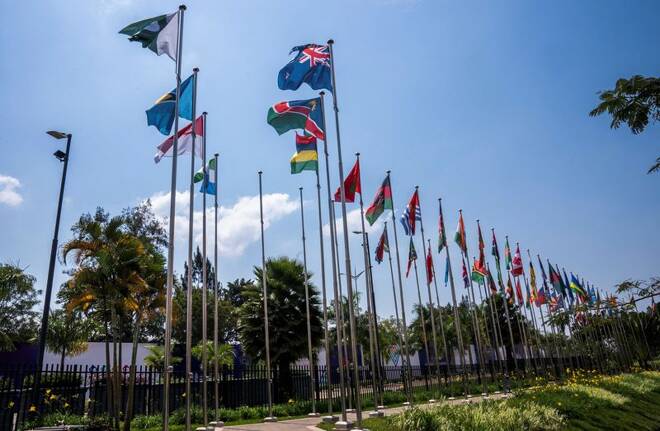Advertisement
Advertisement
Factbox-Commonwealth nations meet in Rwanda – what you need to know
By:
(Reuters) - Heads of government from Commonwealth nations will meet in the Rwandan capital Kigali on Friday and Saturday to discuss cooperation on topics ranging from green energy to rising food prices to the war in Ukraine, among others.
(Reuters) – Heads of government from Commonwealth nations will meet in the Rwandan capital Kigali on Friday and Saturday to discuss cooperation on topics ranging from green energy to rising food prices to the war in Ukraine, among others.
Here are some key facts about the Commonwealth and the Kigali summit, which was supposed to be held in 2020 but was twice delayed because of the COVID pandemic.
* What is the Commonwealth?
It is a voluntary association of 54 countries that evolved gradually from the British Empire and has existed in its modern form since 1949.
* Who are its members?
The Commonwealth includes 13 countries in the Caribbean and the Americas, 19 countries in Africa, three in Europe, eight in Asia and 11 in the Pacific, with a combined population of 2.5 billion.
India accounts for 1.4 billion of its citizens, while 32 members have populations of 1.5 million or less, the smallest being Nauru, which has 10,000 inhabitants.
* Are they all former British colonies?
Most of them are, but that is not a condition for membership. The last two countries to join, Rwanda and Mozambique, have no historical ties to the British Empire.
Gabon and Togo, both former French colonies, are expected to apply to join at the Kigali summit.
* What does the Commonwealth do?
It presents itself as a network for cooperation on common goals such as protecting the environment, boosting trade, supporting democracy, promoting education and gender equality, and giving small states a louder voice on the world stage.
Although it is not a free trade zone, it calculates that its members find it 21% cheaper to trade with other members than with non-Commonwealth countries which are a similar distance away, based on an analysis of World Bank data. Factors include a common language and similar legal and commercial frameworks.
* Who heads it?
Queen Elizabeth has been head of the Commonwealth, a largely symbolic role, since her reign began in 1952. The organisation says the British monarch is not automatically its head, but its members nevertheless agreed at a meeting in London in 2018 that Elizabeth’s son Prince Charles would succeed her in the role.
Charles is attending the Kigali summit, representing his mother.
* Who runs it?
It has a secretariat based in London and a secretary-general, currently Dominica’s Patricia Scotland.
Commonwealth leaders will decide in Kigali whether to re-appoint her for a second term or replace her with Kamina Johnson Smith, the Jamaican foreign minister. Britain has criticised Scotland’s leadership and is backing Johnson Smith, as are India and Belize.
* Who is attending the Kigali summit?
Most heads of government of Commonwealth countries are coming, including Nigeria’s Muhammadu Buhari, Britain’s Boris Johnson and Canada’s Justin Trudeau.
But South Africa’s Cyril Ramaphosa, India’s Narendra Modi, Pakistan’s Shehbaz Sharif, Australia’s Anthony Albanese and New Zealand’s Jacinda Ardern are not expected, raising questions about the relevance of the organisation for those countries.
(Reporting by Estelle Shirbon; Editing by Alison Williams)
About the Author
Reuterscontributor
Reuters, the news and media division of Thomson Reuters, is the world’s largest international multimedia news provider reaching more than one billion people every day. Reuters provides trusted business, financial, national, and international news to professionals via Thomson Reuters desktops, the world's media organizations, and directly to consumers at Reuters.com and via Reuters TV. Learn more about Thomson Reuters products:
Advertisement
